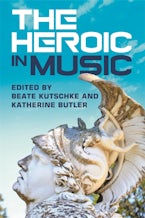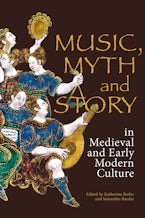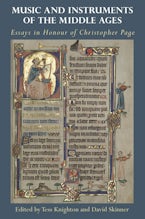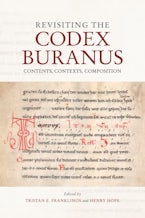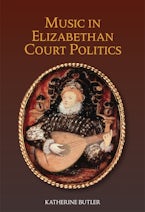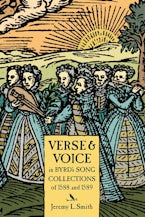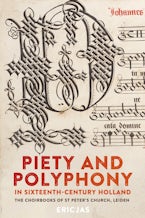
Title Details
271 Pages
23.4 x 15.6 cm
2 b/w illus.
Series: Studies in Medieval and Renaissance Music
Series Vol. Number:
14
Imprint: Boydell Press
Music in Elizabethan Court Politics
- Description
- Contents
- Author
- Reviews
Music and musical entertainments are here shown to be used for different ends, by both monarch and courtiers.
Queen Elizabeth I (1558-1603) had a strong reputation for musicality; her court musicians, Thomas Tallis and William Byrd, even suggested that music was indispensable to the state. But what roles did music play in Elizabethan court politics? How did a musical image assist the Queen in projecting her royal authority? What influence did her private performances have on her courtships, diplomatic affairs, and relationships with courtiers? To what extent did Elizabeth control court music, or could others appropriate performances to enhance their own status and achieve their ambitions? Could noblemen, civic leaders, or even musicians take advantage of Elizabeth's love of music to present their complaints and petitions in song?
This book unravels the connotations surrounding Elizabeth's musical image and traces the political roles of music at the Elizabethan court. It scrutinizes the most intimate performances within the Privy Chamber, analyses the masques and plays performed in the palaces, and explores the grandest musical pageantry of tournaments, civic entries, and royal progresses. This reveals how music served as a valuable means for both the tactful influencing of policies and patronage, and the construction of political identities and relationships. In the late Tudor period music was simultaneously a tool of authority for the monarch and an instrumentof persuasion for the nobility.
KATHERINE BUTLER is a Senior Lecturer at Northumbria University, Newcastle.
Queen Elizabeth I (1558-1603) had a strong reputation for musicality; her court musicians, Thomas Tallis and William Byrd, even suggested that music was indispensable to the state. But what roles did music play in Elizabethan court politics? How did a musical image assist the Queen in projecting her royal authority? What influence did her private performances have on her courtships, diplomatic affairs, and relationships with courtiers? To what extent did Elizabeth control court music, or could others appropriate performances to enhance their own status and achieve their ambitions? Could noblemen, civic leaders, or even musicians take advantage of Elizabeth's love of music to present their complaints and petitions in song?
This book unravels the connotations surrounding Elizabeth's musical image and traces the political roles of music at the Elizabethan court. It scrutinizes the most intimate performances within the Privy Chamber, analyses the masques and plays performed in the palaces, and explores the grandest musical pageantry of tournaments, civic entries, and royal progresses. This reveals how music served as a valuable means for both the tactful influencing of policies and patronage, and the construction of political identities and relationships. In the late Tudor period music was simultaneously a tool of authority for the monarch and an instrumentof persuasion for the nobility.
KATHERINE BUTLER is a Senior Lecturer at Northumbria University, Newcastle.
Introduction
Music, Authority, and the Royal Image
The Politics of Intimacy
The Royal Household and its Revels
Noble Masculinity at the Tournaments
Politics, Petition, and Complaint on the Royal Progresses
Conclusion
Appendices
Bibliography
Music, Authority, and the Royal Image
The Politics of Intimacy
The Royal Household and its Revels
Noble Masculinity at the Tournaments
Politics, Petition, and Complaint on the Royal Progresses
Conclusion
Appendices
Bibliography
"A fascinating book." THE CONSORT
"No one who reads this fine study will again treat music as a background to the Elizabethan court." AMERICAN HISTORICAL REVIEW
"[A] major undertaking of importance, a careful and thorough study of numerous examples of secular music that is undergirded by a keen understanding of music's role in the political life of a fascinating era." EARLY MUSIC
"A deeply serious and scholarly piece of work, but the approachable style and well-organised chapters would engage anyone with an interest in the artistic life of England in the second half of the sixteenth century." SPIRITED
"Tightly organized and impeccably researched, this engaging study triangulates the disciplines of musicology, literary history, and iconography to present the political roles music could play within Elizabeth's court, and adds welcome nuance to the preexisting scholarly narratives of monarchial control over the arts." RENAISSANCE QUARTERLY
"[O]ffers a ... detailed and focused look at the application of music to the specific context of the world of the Elizabethan court." NORTHERN RENAISSANCE
Paperback
9781783274031
June 2019
$36.95 / £24.99
Ebook (EPDF)
9781782044314
January 2015
£24.99 / $29.95
Hardcover
9781843839811
January 2015
$115.00 / £75.00
Title Details
271 Pages
2.34 x 1.56 cm
2 b/w illus.
Series: Studies in Medieval and Renaissance Music
Series Vol. Number:
14
Imprint: Boydell Press



